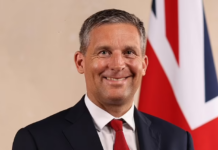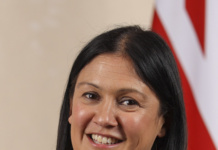The Coalition’s latest educational reform, a heavily revised school curriculum set to be published later this summer, has met with a fresh wave of criticism this week as the UK’s new Children’s Laureate has accused its content as being potentially exclusionary to children of a non-British, and particularly non-white background.
Malorie Blackman OBE, 51, was appointed Children’s Laureate on 4 June. In an interview conducted immediately after the announcement, she described the new curriculum as “dangerous”, suggesting that its dramatically increased emphasis on white, British history and culture risked causing children to “become disenchanted with education because they feel it’s not relevant”.
The curriculum reform, spearheaded by Michael Gove, the Secretary of State for Education, is yet to be officially published, but experts who have seen the draft have criticised it for its almost total exclusion of non-British culture and history from the syllabus. The only exceptions are where Britain comes itself into contact with other nations and civilisations, chiefly from a one-way colonial perspective.
In addition to overviews of Africa and other non-Western continents being expunged from the curriculum, gone also are numerous black Diaspora figures once central to the syllabus, such as Marcus Garvey and Martin Luther King Jr.. Mary Seacole, the Victorian nurse known as the “black Florence Nightingale”, was also set to be scrapped, before Gove quickly backed down following huge public outcry.
Instead, the new syllabus will focus overwhelmingly on white, Anglo-centric political culture, with a particular emphasis on individual, pro-imperial statesmen such as British prime ministers Winston Churchill and Benjamin Disraeli. It is reported that anti-colonial revolts are to be portrayed under the new system as disobedient “mutinies”.
The Department for Education has been strongly defensive of the reforms. According to a spokesman, the new system encourages educational “rigour”, rather than wasting time on what it calls “abstract concepts and processes”. Right-wing intellectual Niall Ferguson has also come to the Government’s support, rejecting the “pomposity” of its critics.
Gove claims that “the new curriculum affirms – at every point – the critical importance of knowledge acquisition”. In addition to the curriculum’s historical revisions, geography will be taught under traditional lines, emphasising “proper locational knowledge” rather than geopolitics, while the study of literature will focus on “proper knowledge of pre-20th-century” British works.
Yet Blackman is highly critical. Speaking to the Guardian, she denounced the new curriculum as “very inward looking”, and its failure to be relevant to people of non-British, non-white cultures a “mistake”. She warned that, if black children are to be taught only about white British developments, they risk turning their back on education more generally.
“I do feel it’s very dangerous if you make it seem like history is the province of a certain segment of society”, she said. “The curriculum needs to appeal to as many children as possible or a number of them could become disenchanted with education because they feel it’s not relevant.”
Blackman, who was born in Croydon and is of Bajan heritage, is the first black person to be appointed to the prestigious position of Children’s Laureate. She is the bestselling author of over thirty books for children and young adults, including the critically acclaimed Noughts and Crosses, which imagines an alternative history of African technological advantage over Europe.
She suggested further that the new curriculum fails also to take into account non-white literary culture: “We need more books that are specifically about the British BME (black minority and ethnic) experience and that’s why I bang the drum for more diversity and not having this idea that if a book has got pictures of a black or Asian child then it’s going to have a limited market.”
Blackman’s comments are the most high profile condemnation of Gove’s proposals yet, and the first from a major black figure, but they are not the first. Labour educational spokesman Tristram Hunt described Gove’s approach as “dumbed down” and poorly researched, while Shadow Education Secretary Stephen Twigg denounced it as a “pub quiz curriculum”.
Academics have been similarly critical. A letter undersigned by over 100 university professors and education experts earlier this year predicted that the new curriculum will “severely damage educational standards”, while broadcaster Simon Schama called the changes “insulting and offensive”. The President of the Royal Historical Society has described the new syllabus as far from what “an appropriate cultural literacy is for the 21st century”, and more suited to “1956”.
Yet Gove, who last month was heckled at the National Association of Teachers conference and given a vote of non-confidence, is refusing to budge on the reforms. “The consultation period on the draft curriculum is now closed and we will respond in due course”, runs the official statement from his Department. The new syllabus is set to be fully published in September and come into force next year.









